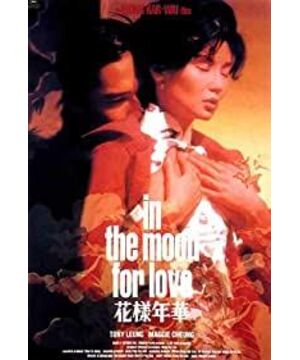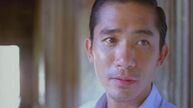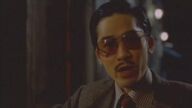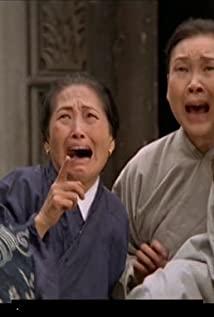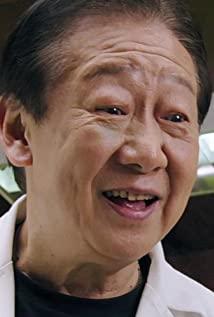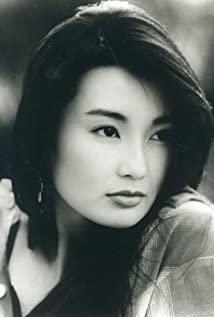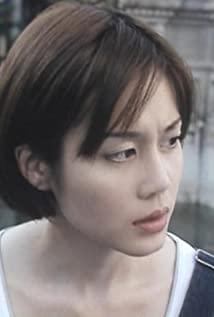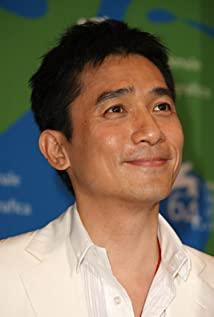swaying cheongsam, the dim street lamp, the meticulously combed Aisi head, all the emotions that want to say but are ashamed, like a yellowed old turntable, quietly spinning in the phonograph of the years. There is no noisy impetuousness, no bubble culture. The epitome of sings an old song sadly but beautifully: In the Mood for Love. A good movie will follow, with the same tenderness.
This is a film by Wong Kar-wai, a representative director of postmodernism in Hong Kong in the 1990s The storyline cannot be simpler-telling about the extramarital affair of two married men and women. There is also a similar theme film called "The Bridge of Madison County" in the United States. The two have similarities, but the latter is the love of Westerners. The concept of love reflected in "In the Mood for Love" belongs to the oriental sentiment of "the faint sadness of the white walls and black tiles of that era."
Let us turn around and talk about Wong Kar-wai, who is often shown by a pair of sunglasses. The director, the works produced are all films with a strong personal touch. The "footless" and "one-minute theory" in "A Fei's True Story", A Fei's unrestrained attitude seems to be his epitome; "Chongqing Forest" The maverick life philosophy of police 633 and 663, "canned pineapple" and the theory of love preservation have also become classics in Chinese movies; the sharp eyes of Ouyang Feng and "solitary smoke in the desert" The atmospheric shot of "Long River Sunset Yen" has become a model that many directors and even director Zhang Yimou have used for reference; even "Happy Together", a controversial gay movie, Director Wang can still shoot it delicately. Moving, the skillful use of the long shots in the film, and the vertical beauty of Nicaragua Falls are all destined to be labeled as Wong Kar-wai style. However, in the 2000 "In the Mood for Love", Director Wang's avant-garde aesthetics did not Embodiment. On the contrary, this film is full of implicit beauty and implicit lens language. The theme of the film is also concerned with the usual emotional processing of Chinese people, from beginning to end conveying the unique charm and ideas of the East to the audience. It can be said that this is a film that is most unlike Wong Kar Wai's style, but is deeply loved by him.
In the film, Tony Leung and Maggie Cheung respectively interpret Zhou Muyun and Su Lizhen, two married men and women of the middle bourgeoisie in the old Hong Kong in the 1960s with traditional concepts. They all had their own families. A fate made them all move into the same apartment. Another fate made the distance between their two families just a wall. In the gradual communication, everyone got acquainted. But when they met alone in the narrow corridor, they still only said "What a coincidence?" They hurried past and continued to walk their respective paths. If you just live like this, you will feel at ease. But finally one day, they discovered the fact that their partners had gone together unfaithfully. Zhou and Su don't know if it is because of a feeling of pity for the same illness, or based on a mentality of revenge, or neither. They just want to find a confidant who can tell their concerns. In short, they became friends. I have eaten western food together, wrote martial arts novels in the famous room 2046 of the hotel, acted out the reasons for each lover’s derailment together, and ate glutinous rice chicken early in the morning in the male protagonist’s room...they They all said, "We won't be like them." But later, the sentence "It turns out that some things will happen unknowingly." It proved the beginning of a bitter love. Zhou Muyun is struggling, Su Lizhen is also struggling, struggling on the edge of emotion and morality, and hesitating on the edge of love and dislove. Unfortunately, in the end, none of them took that crucial step and divided things. With the concern for each other in her heart, Su Lizhen chose to sit in his already empty room and cry silently, letting tears flow freely across her cheeks; Zhou Muyun chose to tell the secret of her heart in the stone cave of Angkor Wat and buried it in the earth. Live, let it always be a secret. In the Mood for Love, it was a silent ending.
This is a movie that will be heavy after watching it, and it is also a movie that will be thoughtful after watching it. Many people watch it just because of the gorgeous cheongsam. Indeed, the 26 sets of graceful and elegant cheongsams are indeed a kind of beautiful enjoyment when they are tightly wrapped around the exquisite and graceful curves of Maggie Cheung. But if you watch this film just to appreciate the beauty of clothing, it would be a bit of a waste of a good film.
A good film is like a cup of tea. It doesn't taste much at first taste, but after tasting it, a refreshing fragrance will flow into your internal organs unknowingly. "In the Mood for Love" is such a film. Whether it's the exquisite close-ups in the lens, the soft light cast by the dim yellow street lamp in the light rain, or the bright layers of the entire picture, the eye-catching techniques of color matching are all manifestations of the profound skills of director Wong Kar-wai and photographer Du Kefeng. There is also the sound art in the film that I have to mention. Even the sound effects of raindrops are so contagious, not to mention the main theme of the film, which is accompanied by the protagonist and heroine who repeatedly meet in the corridor. -The lyrical violin has a hint of repression. These hardware facilities of the film are flawless, and what is more valuable is the soul of the film-the content plot, as described by Wong Kar-wai.
It is like a scene that often appears in the film: Zhou Muyun is eating wonton noodles alone at a noodle stall, and the camera at this time freezes on his face for a long time. His eyes were filled with depression and loneliness-for his wife who never returned home. At this time, Su Lizhen appeared on the wet stone road with an exquisite heat preservation pot. The camera was shot by her slender hands, and gradually moved up to her chest, but she could not see her face. This kind of open composition can arouse countless imagination of the audience. She came to the noodle stall with the same wonton noodles, with a pensive melancholy expression on her face-for her husband who did not return. The other pair is enjoying love, and this pair is just eating their own wonton noodles. I have to say that at this moment, the director uses a method of interweaving light and dark lines to express the two concepts of love both implicitly and introvertedly. And this kind of artistic conception can only be understood after repeated and careful taste. It can be described as a classic plot of the film.
There is also a memorable segment in the middle and lower part of the film. Zhou Muyun finally plucked up the courage to express the long-repressed feelings in her heart to Su Lizhen. But Su avoided it with speechless silence. Zhou saw the end that the two could not be together. So he asked Su Lizhen to do something for him-refused him, let him practice to bear the pain, Su agreed. But when Zhou finished saying "Take care of yourself from now on" and then let go of her hand and walked away without looking back, Su started to feel turbulent. At this time, I used a long lens to close up the twitch of Su's hand at the moment of being released, and then firmly grasped the other arm. The green veins on the hand appeared, and a kind of spontaneous pain suddenly appeared in the hand. . Then the camera moved to her face: intolerable, sad, impulsive, depressed... all expressions converge in one place. Immediately afterwards, Su Fu appeared in Zhou Jian with a headache and crying. Zhou's hand kept tapping her shoulder gently and comfortingly said, "It's all right, it's just acting, just acting..." The long-repressed emotions burst out suddenly, but the director did not deliberately sensationalize, but only used the skillful lens language to express it gracefully, but got the successful effect of "the silence is better than the sound at this time". This alone can make many directors who often make actors call out "I love you!" to study hard.
At the end of the film, after Zhou Muyun left the sad place of Hong Kong, Su Lizhen came to his room, lit a cigar, didn't smoke it, just left it there to let its smoke swirl, hover, and scatter. A scent she was once familiar with. She sat on the chair, and tears began to fall. Drop by drop, and finally connect into one piece. At this time, all the background sounds in the movie disappeared. After a while of loneliness, a man’s voice rang, resounding in Su’s heart, and echoing in the ears of the audience--
if there were more tickets, would you be with me? go? "No
words...
maybe everything should be the English translation of the film: In the mood of love
is just the "emotional love", in that passing away in the Mood for Love...
View more about In the Mood for Love reviews


